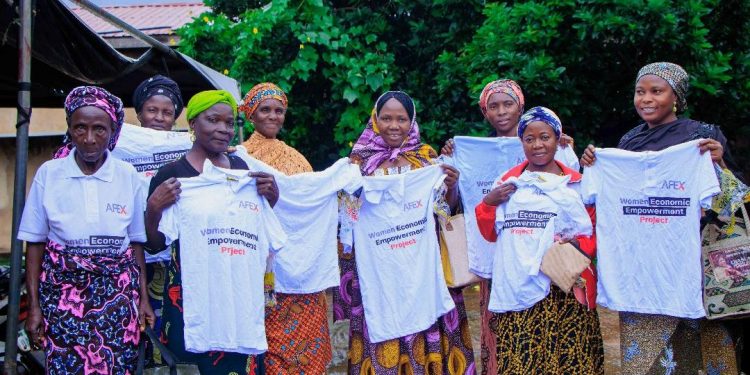AFEX, in partnership with the Kaduna Women Economic Empowerment (WEE) Project, has successfully trained female farmers in Kaduna on best agricultural practices, aiming to promote sustainable farming in Nigeria. This initiative forms part of a broader effort to empower women in northern Nigeria, providing them with the tools and skills needed to boost agricultural productivity.
In a statement released after the campaign, AFEX emphasized that the project is part of the WEE initiative, designed to drive the inclusion of women in rural areas by offering essential resources to enhance their capacity and productivity. According to AFEX, female farmers in Nigeria typically produce 30% less per hectare compared to their male counterparts, primarily due to limited access to inputs, participation in extension services, and financial services.
AFEX highlighted the challenges women face in rural areas, where 37% of women are banked compared to 46% of men, as reported by the World Bank. The three-year WEE Project, funded by the Bayer Foundation, aims to overcome these barriers by providing access to agricultural inputs, market opportunities, and health services to support women and girls in thriving economically.
The recent two-day sensitization campaign held in Kafanchan, Kaduna, brought together key partners, including Advantage Health Africa, Healthy Entrepreneurs, the Jennifer Etuh Foundation, and local female farmer cooperatives. These stakeholders discussed the various opportunities available through the WEE Project.
As part of the campaign, many female farmers were introduced to AFEX’s technology platform, WorkBench, and trained on global agricultural practices, crop management, and mitigation strategies. They also had the opportunity to engage with participating partners to learn more about how to get involved.
Kamaldeen Raji, Managing Director of AFEX Fair Trade, emphasized AFEX’s commitment to sustainable agricultural value chains in Africa. “Empowering women farmers is crucial to achieving this goal. By providing them with the tools and resources they need, we can foster a more inclusive and equitable agricultural sector,” he said.
Mobolaji Adesanya, Project Coordinator for the Kaduna WEE Project, praised the campaign’s success. “This sensitization campaign was a vital step in connecting with women farmers. As we work towards transforming the lives of 30,000 female farmers, strong public-private partnerships will be key to addressing the unique challenges faced by rural women,” she remarked.
The WEE Project’s ongoing efforts are expected to significantly improve women’s participation in agriculture, leading to a more productive and sustainable sector across Nigeria.










